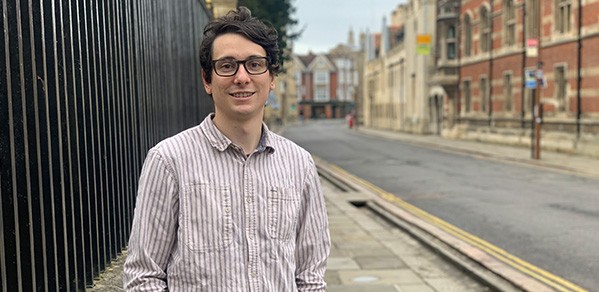
Dr Scott Keene, Research Associate in Neurotechnology, has been awarded a major research fellowship by the European Commission.
This atomic level understanding of the material will help engineers design the next generation of biosensors and implants with improved accuracy, safety, and long-term stability.
Dr Scott Keene
The Marie Skłodowska-Curie Actions (MSCA) Individual Fellowship grant will allow Dr Keene to investigate organic mixed conductors at the atomic scale in order to enhance understanding of the interaction between ions and electrons. As part of the Fellowship, he will also receive training and supervision to enhance his skills and boost his career.
Organic mixed conductors offer outstanding promise for the development of medical devices for use outside of a healthcare setting. These materials can be used to make wearable sensors that monitor the health status of patients remotely or implantable devices that actively treat disease. Organic mixed conductors allow ions, which make up electrical signals in the body, to couple closely with electrons, which make up electrical signals in medical devices. This unique interaction allows organic mixed conductors to improve the connection between the body and medical devices by translating between these two signals.
Using state-of-the-art imaging technology, Dr Keene, who is part of the Department’s Bioelectronics Laboratory, will capture the movement of ions and directly observe how they interact with electrons within an organic mixed conductor.
“Through close monitoring, we will study how ionic signals are converted into electronic signals to gain a better understanding of how the properties and structure of the material affect its performance,” he said. “This atomic level understanding of the material will help engineers design the next generation of biosensors and implants with improved accuracy, safety, and long-term stability.”

